On one of our first trips to Mexico, my husband asked a perplexing question: “Why are Mexicans using the Welsh word, oi?” My husband is from Wales and, at that point, spoke no Spanish. The British use the word oi as an interjection to call attention, or as a challenge, depending on its tone and abruptness. As a fluent Spanish speaker, I thought about it for a while and then declared that there is no such word in Spanish.
A few days later, my husband proclaimed, “There, I just heard you say the word, oi.” I suddenly realized that I had just said the word, hoy, the Spanish word for “today.” For the first time ever I noticed that the Spanish word hoy and the British word oi sound the same. Totally different meanings though. Even today I think my husband keeps hearing people saying oi to him because he looks around quite warily when he hears a Mexican saying “today.”
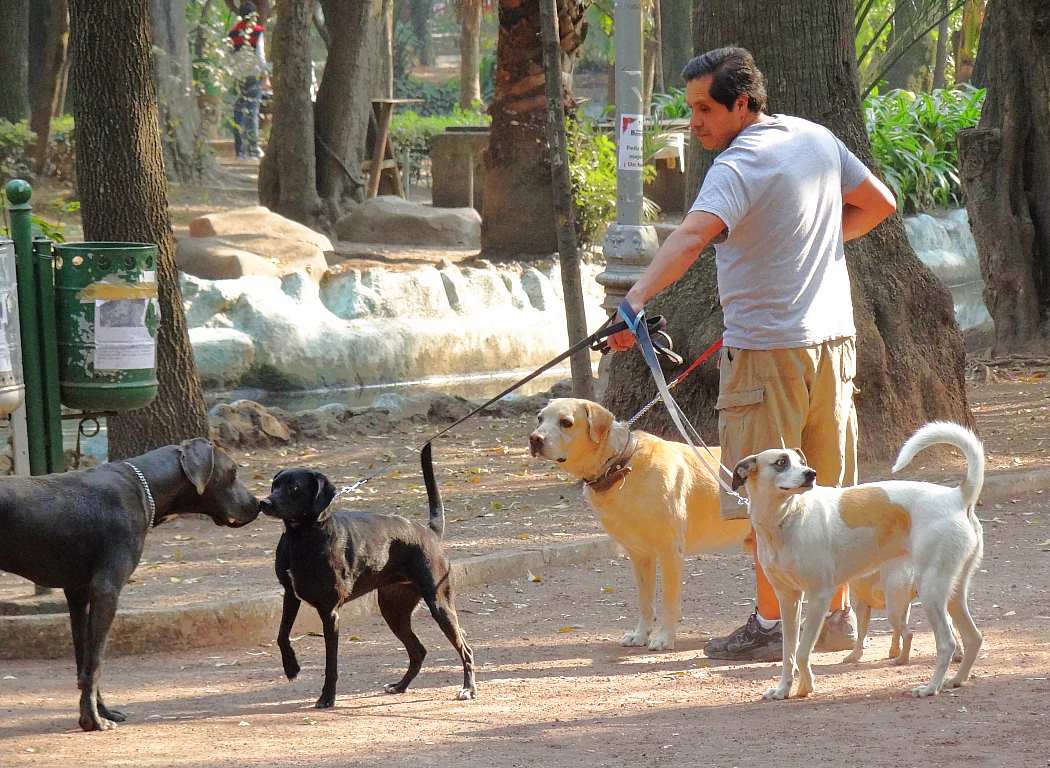
A Canadian friend told me that she couldn’t believe how many dogs in Mexico have the same name. She insisted that she has heard many Mexicans call their dogs Ben. She assumed that Ben was short for Benjamin, the same as in English. But she couldn’t figure out why they would all call their dogs Ben. I mulled that one around for some time and couldn’t come up with an explanation. I had never heard anyone call their dog Ben.
A couple of days later, I was sitting relaxing in the Jardín of San Miguel de Allende, enjoying the sun and watching the world go by. Suddenly I heard a gruff, “Ven!” I looked around and saw that a gentleman was calling his dog. That’s when I realized that the name Ben, and the Spanish word for “come” (ven) are identical in sound. I have since heard many dogs, as well as small children, called Ben.

Another time, when I was speaking to some Mexican friends, my husband asked me why we were saying the word, Safeway. Safeway is a supermarket chain across Canada and the United States. Of course I said that we hadn’t been talking about Safeway. No way! He said that I had asked a question and the person had replied, “Safeway.” I thought and thought about this and it suddenly hit me. I had asked if Teresa was in (¿Está Teresa?) and the answer had been, “Ya se fue.” ( She’s already left). I had an aha moment and realized that “se fue” in Spanish sounds like Safeway in English. Never thought about that one before. Now every time someone says, “se fue,” we glance at each other with a knowing smile.
A friend has been working hard trying to learn more Spanish. He likes to listen to Mexicans having a conversation so that he can try to figure out what they’re saying. He told me about an odd thing that he has noticed. Quite often in a Spanish conversation, he will hear the English word, “Monday.” He was stumped about why that one English word would occur in a Spanish conversation and so was I. One day I was sitting beside him on a bench in the Jardín and we were listening to the same conversation. “There’s that word ‘Monday’ again,” he said. “The guy in the blue sweater just said it.” I had been listening and understanding the conversation and I had clearly heard him say the Spanish word, mande. Now mande is an interesting word in that it is used only in Mexico.
¿Mande? comes from the verb “to order” in the imperative form, as in “please, give me an order” or “as you command.” ¿Mande? is a legacy of colonialism—Cortés used the term in his letters. Indigenous people would respond in this way to their Spanish superiors and many people believe that the word has Nahuatl roots. The ultra polite “¿mande?” is used in Mexico for the English “pardon?” rather than the words, “¿qué? “¿cómo? or “¿perdón?” used in other Spanish-speaking countries. Mexicans consider using “¿qué?” (what?) as especially rude. I remember once having a conversation with some Cubans. As soon as I said the word, mande, they all smiled at me and said, “ah, so you learned your Spanish in Mexico.”
I saw a video on social media the other day and it showed San Miguel police arresting a musician for not wearing a mask and then attacking a female police officer. They had asked him to please put on a mask, but he steadfastly refused. They tried to take him in their car, but he resisted arrest and shoved and pushed a female police officer. They really had no other choice but to handcuff him and force him into the police car. I noticed on the video that he kept screaming, “¡auxilio! ¡auxilio!” (Help! Help!) An English-speaking person wrote a comment below the video that he thought it was no wonder that they had to arrest him forcibly because he kept screaming, “I’ll kill you!” I find it a bit of a stretch that “¡auxilio!” could be mistaken for “I’ll kill you!” but I guess our ears seek out familiar words when we’re listening to a foreign language. On the other hand, why would the musician have said, “I’ll kill you” in English?
To me, language and culture are profoundly linked and both are a complete puzzle to outsiders. Not only is there room for misunderstandings within the language, but also in the actions of people from different language and cultural backgrounds.
A Mexican friend of ours told me a story of how he had seen a foreign couple, probably Canadian or American, in the San Miguel Jardín looking very confused and lost. Being the considerate gentleman that he is, he asked them in his flawless English if he could help them. They told him that they wanted to go to San Miguel. He politely told them that they were in San Miguel. No matter what he told them, they insisted that all they wanted to do was to go to San Miguel. Eventually he excused himself with a gracious con permiso and left them. We’re still wondering about that one.
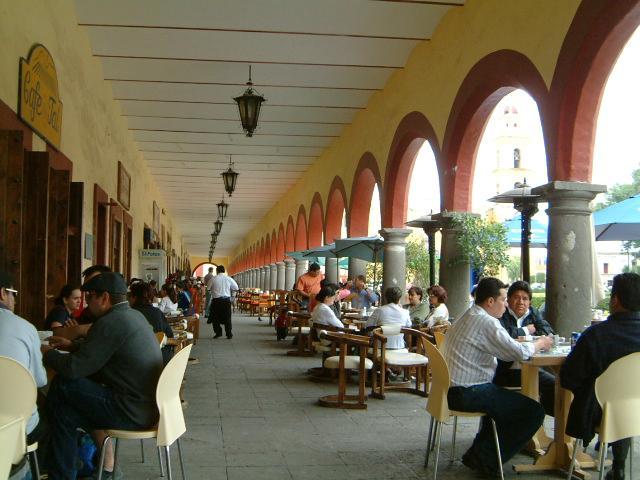
Many years ago, when I lived in Cholula, Puebla, my friend Kathy and I heard that there was going to be a performance of the Bolshoi Ballet in a neighboring town. That was so unexpected! We just had to go and see it. We bought tickets and set out for the small town. On the tickets it said that the Ballet would be held in an auditorium, but there was no address given. In those days, most streets in small towns were without a name.
When we arrived on the outskirts of the town, we stopped and asked a couple for directions to the auditorium. The gentlemen gave us explicit directions and we set out following his directions. Looking at our watches, we realized that we were going to be a bit early, but no matter. We could wait a while in the car until the doors opened. We drove exactly according to his instructions, but there was no auditorium in sight. We figured we were close to it, and asked another gentleman to help us. To our surprise, he gave us detailed instructions, but quite a distance away and in the opposite direction. When we arrived where he had told us to go, there was no trace of an auditorium. We kept on asking friendly people on the streets with the same results.
I remember Kathy asking, “Why do all these people hate us so much? They don’t even know us. Why are they all lying to us?” Eventually we happened upon the auditorium accidentally, but we had missed the first half of the performance. A couple of years later we found out what had happened and we still laugh about it today. It is considered rude in Mexico to say that you don’t know something. A Mexican is always polite and helpful, even if he has to invent something.
My husband and I used to drive down from Canada to San Miguel. One year we stayed overnight in a hotel in Gómez Palacio. It was a beautiful hotel and all the staff was friendly and helpful. When we were leaving in the morning, we asked which way the highway was. We couldn’t remember which direction we had come from to find the hotel the afternoon before. A polite doorman pointed us in the right direction. We thanked him and proceeded towards the highway. We ended up at the city dump! At least this time, we understood what had happened. Sorta. One good thing came from this: from the garbage dump, we could see the highway, far, far away in the distance, on the other side of town.
I have to go now. We need vitamins and this is discount Monday at Smilies (Farmacia Similares).
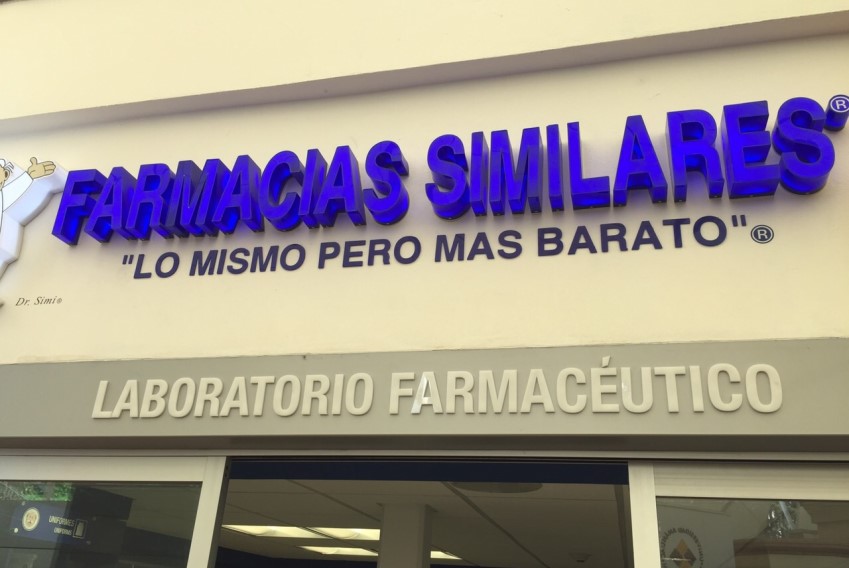
Pat Hall is the author of Speak To Me: Travels and Exploits of a Language Lover, an account of her adventures traveling and pursuing her passion for languages, available on Amazon.
Published or Updated on: January 12, 2021 by Pat Hall © 2021

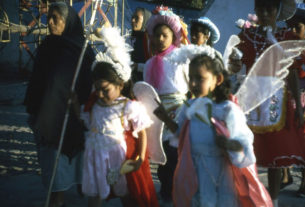
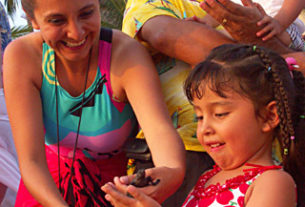
Always love your stories Pat.
Thanks, Larry.
You have a wonderful way of informing others thru storytelling. I look forward to reading your next article.
Thanks, Donna.